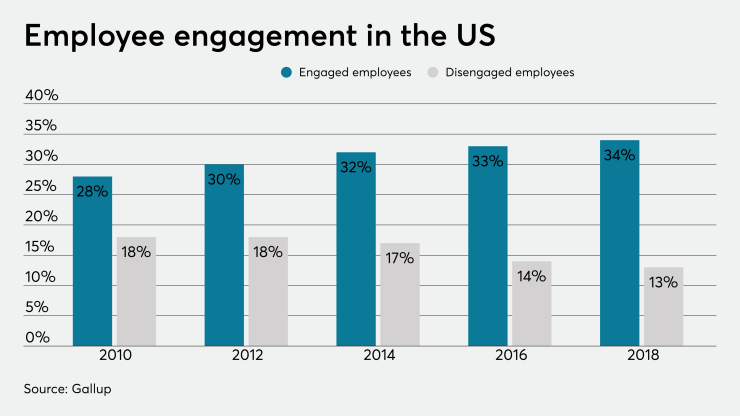After entrepreneur Claire Schmidt read former Uber employee Susan Fowler’s powerful 2017 blog about her negative experience at the ride sharing company, Schmidt founded AllVoices, a workplace reporting and feedback platform. She saw the need for a safe space where employees can anonymously report issues they are having without fear of repercussions.
“The process that people who experience difficult things in the workplace should follow basically involves very vulnerable people having to come forward and hope for the best,” Schmidt says. “They have to hope they don’t face retaliation, and hope that HR handles things the right way.”
The employees who speak up take on a huge risk in hoping for justice and pushing to implement cultural change, Schmidt says. Those risks keep many from coming forward.
In an effort to encourage employees to share their concerns, AllVoices offers two versions of their app — a consumer facing model in which an employee can make an anonymous complaint and identify where the complaint should go. AllVoices’ second version works directly with employers who are looking to improve the culture at their organization. In an effort to maintain employee anonymity, Schmidt says AllVoices will not implement any tech into their system that would provide employers with information identifying who made the complaint.
As the coronavirus pandemic continues to cause massive transition and uncertainty for businesses, Schmidt says AllVoices has seen double the number of complaints since March. She discussed why AllVoices is a critical tool for employees, and the lessons employers should take from COVID-19 t in a one-on-one interview.
How does AllVoices assure employees their complaints are completely anonymous?
Our number one goal was to build trust with employees. There are a lot of tools out there that say responses will be confidential, but in many cases we know that’s not true and that company leaders and HR leaders can figure out who submitted that report. We understand that trust isn’t something you get automatically from employees, especially those facing challenges. As such, we make a lot of product decisions that might be worse for the companies but are better for the employees.
Early on, a lot of the companies we spoke to wanted to make sure that nobody outside their organization ever reported anything in this tool, so they wanted employees to authenticate themselves with their work email address. I can understand why an employer would want that, but we didn’t do that. We have taken a stand over and over on behalf of the employee, making sure to protect the employee’s anonymity, by not asking for any identifying information and encrypting all data we get.
Sixty days after employees submit their feedback, AllVoices sends them a two question survey that asks if they are aware of any steps the company has taken to address the issue raised and how satisfied they are with the steps the company took. We have a pulse on how employees are feeling about how our tool worked for them.
Have you ever seen a complaint result in meaningful change within an organization?
One of our employer customers had announced a change to their paid time off policy. It’s the kind of thing that people wouldn’t be happy about, but would be scary for any one person to raise their hand and say “I don’t like this change that’s being made.”
The company received a number of reports through AllVoices about it. That gave HR the data to go back to the executive leadership and advocate for the policy to be reversed, and the company did it.
In cases like this, people sometimes organize walkouts, talk to the press or post negative reviews on Glassdoor. In this case, none of those things had to happen because employees were able to voice their concerns internally and be heard, even without coming forward.
How has COVID-19 impacted your business?
You can’t just walk into your HR office anymore — there isn’t that in- person option. Usage of the tool has increased significantly. There was a doubling of reports between February and March. Earlier in March, there were people speaking up about safety concerns. A substantial number of those reports are and were about coronavirus. A lot of people are concerned about being laid off; they want to know what the future looks like for their company, will they have a job; challenges with remote work or in some cases not being able to work remotley.
What is the biggest lesson employers should take away from the COVID-19 pandemic?
Everyone is having a different experience, so there can’t be a one size fits all approach to a workforce. The most important thing that any employer can do is provide ways of enabling employees to speak up and share information and feedback. Once employers know how employees are feeling and what real challenges they are facing everyday, they can start to create accomodations for those things and implement policy changes. That can go a really long way, but employers can’t do that if they don’t know what’s going on.






